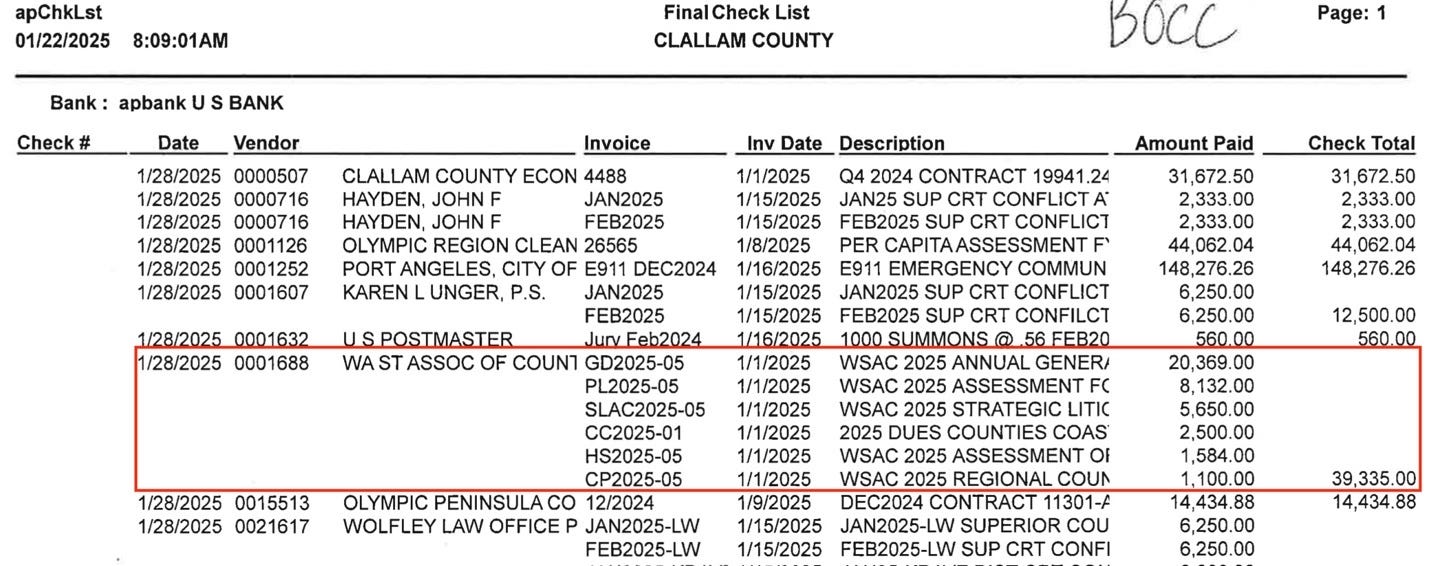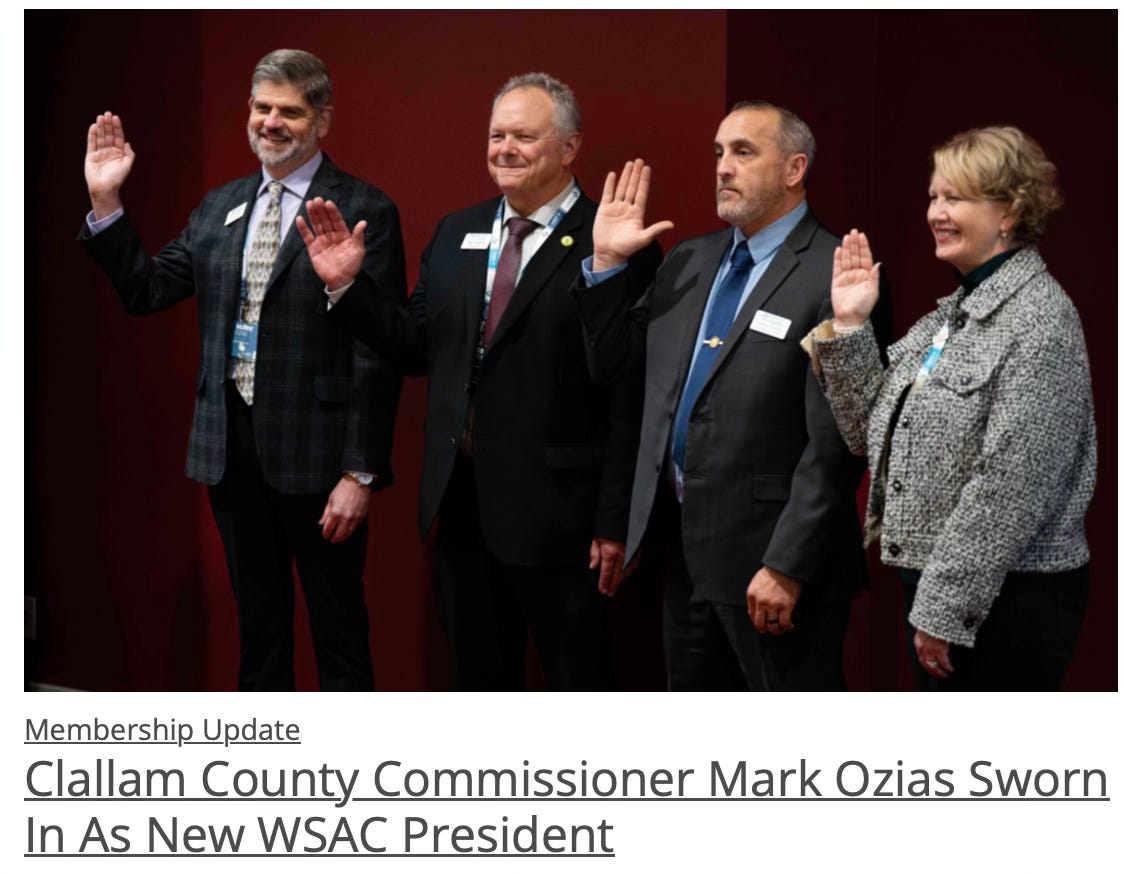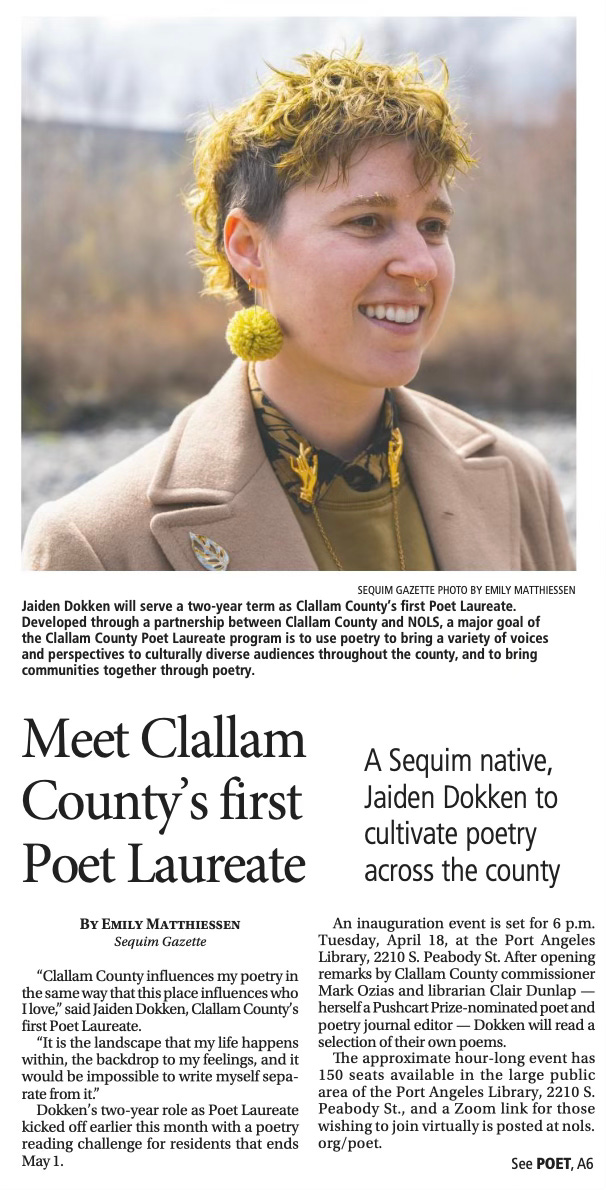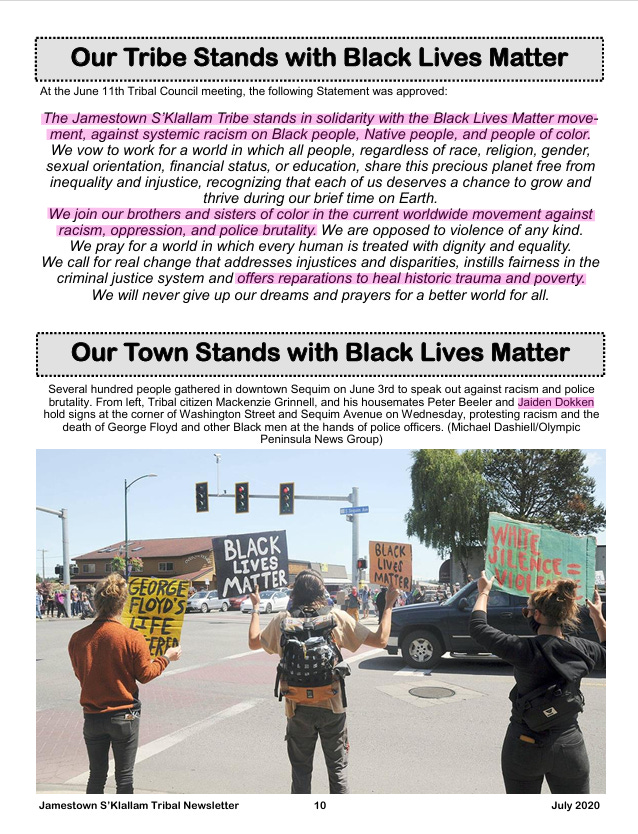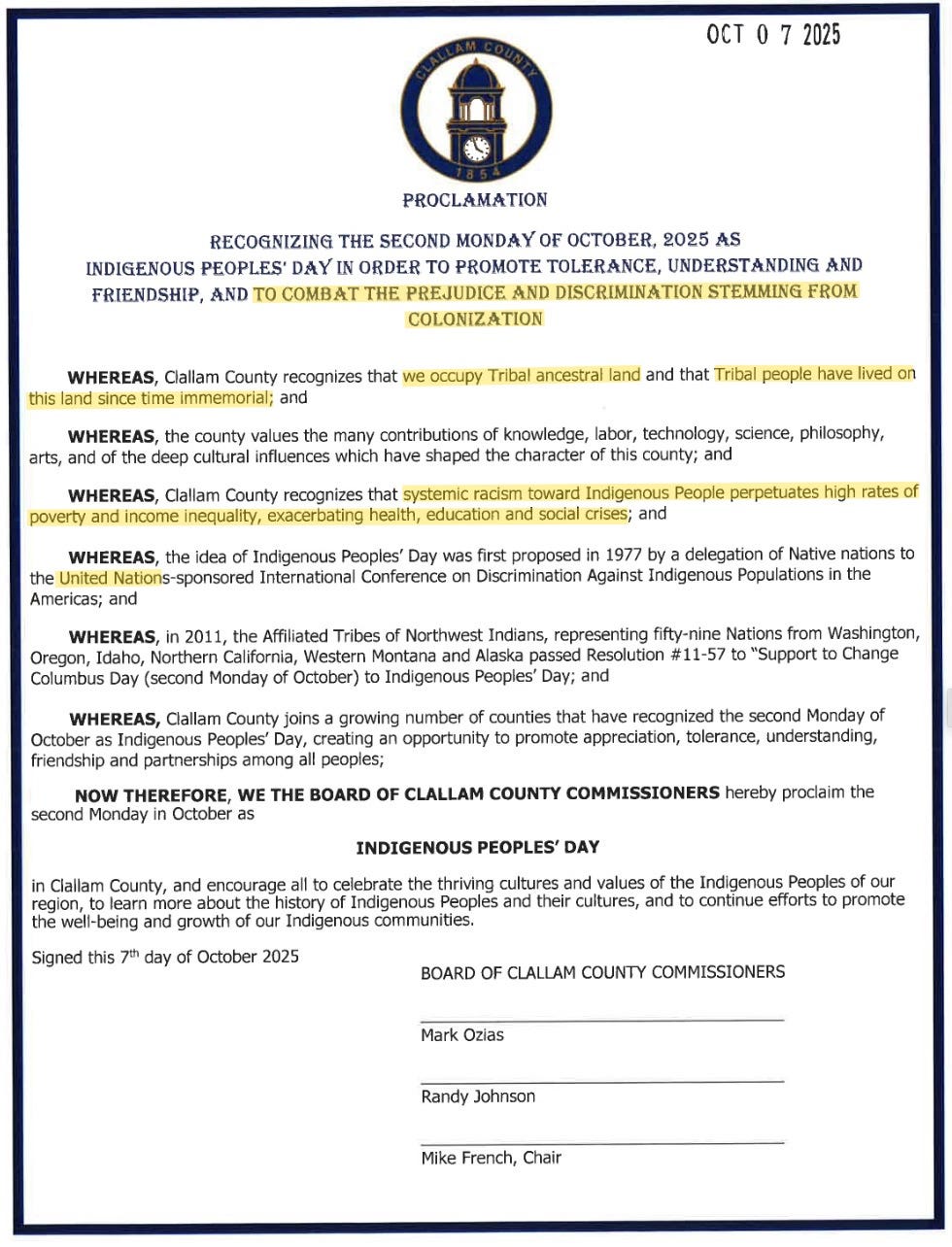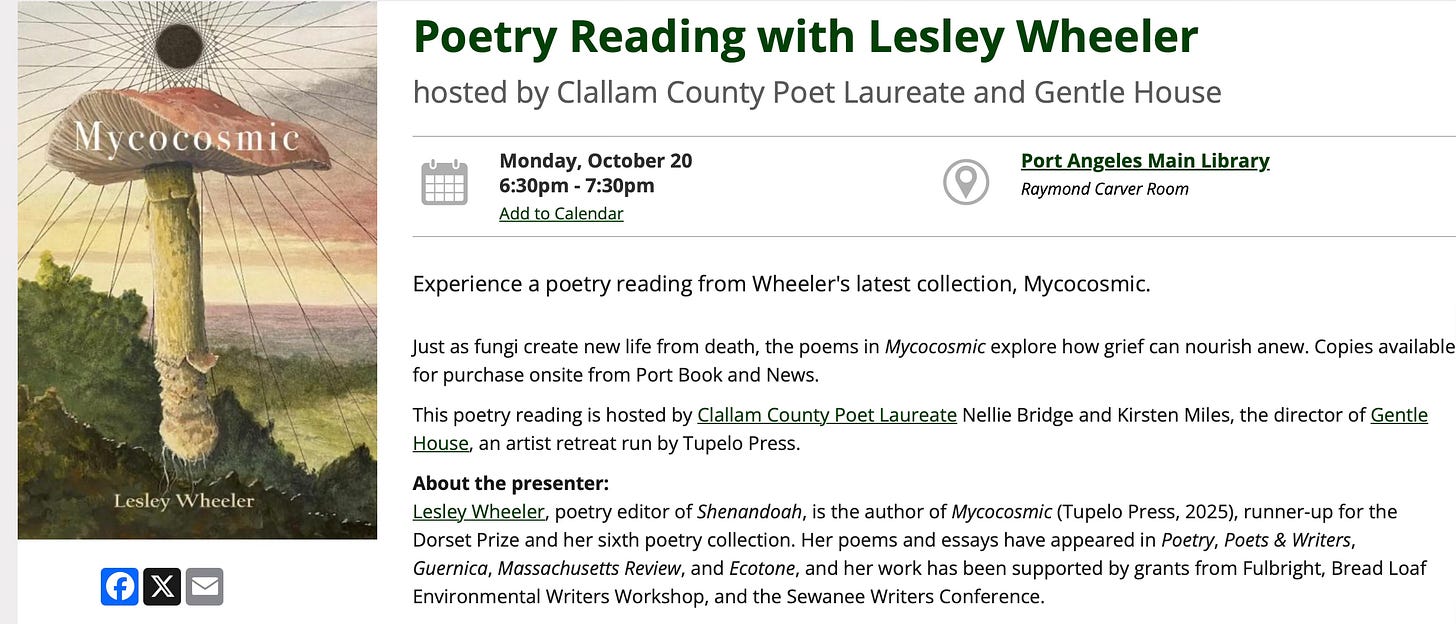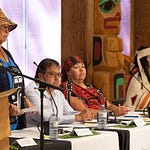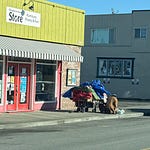Clallam County is raising property taxes again, insisting that growing expenses leave them no choice. Yet the same leadership that won’t send a follow-up letter to the Jamestown Tribe about lost tax revenue has continued to fund nonessential programs—most notably a county poet laureate. In a county struggling with homelessness, addiction, attrition in law enforcement, and shrinking tax rolls, residents are asking: if we can afford a political poet-in-residence, what can’t we afford?
Yesterday, Commissioner Mark Ozias publicly voiced disappointment in the Jamestown S’Klallam Tribe. Three months ago, the Board of Commissioners sent a letter requesting a conversation about the Tribe’s contribution to property and lodging taxes—revenues that decline each time land transfers into tribal trust. That letter was ignored.
The commissioners admitted they haven’t sent a follow-up. They may discuss doing so in a future work session.
Just last year Commissioner Ozias declared the Jamestown Tribe “the most important partner in local governance.” Not local businesses that form the tax base. Not residents who shoulder an increasing financial burden in one of the poorest counties in Washington. Not other tribes who operate without the same level of political entanglement.
Instead of following up with the Tribe, the Board voted this week to increase two portions of your property tax statement—the general fund and the road fund—by 1% each, without a public vote. The justification: rising insurance, inflation, indigent defense costs, and growing demand for public services.
There was no discussion of how we got here.
A Lobbying Bill That Works—for One Person
Earlier this year, Clallam County sent nearly $40,000 in taxpayer money to the Washington State Association of Counties (WSAC).
That same organization lobbied Olympia to raise the cap on how much counties can increase property taxes—from 1% to 3%—without voter approval. WSAC also pushed for a Road Usage Charge, which the state defines as a pay-per-mile tax. Rural residents, who often live miles from the nearest grocery store or jobsite, would be hit hardest.
One person has benefited from this investment: Commissioner Mark Ozias, who was just elected incoming WSAC president.
How We Got Here: The Poet Laureate Program
Among the nonessential “wants” that continue to absorb taxpayer dollars is the county’s poet laureate program. Commissioner Ozias introduced the idea in 2022, with a $5,000 annual stipend.
His reasoning:
“Poetry can be a really helpful way to remind us that we share common ground.”
The first poet laureate was Jaiden Dokken, who prefers they/them pronouns. [For the sake of clarity and consistency, this article refers to Dokken by last name only.]
Dokken’s work and public activism were well known. The Jamestown Tribe highlighted Dokken’s Black Lives Matter activism in a 2020 newsletter, featuring a protest sign reading “White Silence = Violence.”
The Board of Commissioners later echoed the Tribe’s statement of solidarity with Black Lives Matter in their own proclamation condemning ongoing “systemic racism” against Indigenous people.
But the BLM movement—through calls to defund police—helped usher in a statewide reality: Washington now ranks dead last in law enforcement per capita.
This is the context in which Commissioner Ozias introduced the taxpayer-funded poet laureate in 2023.
Dokken’s County-funded readings were mild, but a review of Dokken’s catalog—posted publicly—shows the commissioners placed an activist, not just a poet, on the county payroll. Several poems aggressively advance progressive themes on gender, race, reproductive politics, and identity.
Excerpts from “Compliancy”
“…slingin’ IUDs all day everyday since Trump was elected…”
“…not wanting to be pregnant is an impulsive reaction to a political climate. Which it is and it isn’t…”
“…feet in those goddamn stirrups, this dude staring right into me…”
“…almost certain I’ll eject this IUD right into the toilet, ripping my insides the whole way out like a bloody streamer…”
“Summertide”
Scaling Back—but Still Not Saying No
The second poet laureate, Nellie Bridge, receives $2,000 from the County, with the North Olympic Library Foundation covering the remainder through donations and grants. Whether the program is being phased out, reduced, or simply back-burnered is unclear—the commissioners have not said.
But the program still involves taxpayer funds.
And its events continue to center voices from one political perspective. As recently as October, the county-supported program hosted a poet whose works are steeped in feminist, racial, and political themes—while commissioners argue they need higher taxes to maintain basic public safety.
We marched in a cold city
pinked by hats with pointy ears,
ever alert to my inhospitable
secret vagina, whether it will
be grabbed or judged not fit
for grabbing. … Countless cartoon uteri
lofted into polity: she, she, she.
Meanwhile, men orate.
This continues to be America. The speaker has brought her daughter, however,
and as dispirited as the mother might feel,
nothing is lost on her daughter,
whose rebel yell is “Gender isn’t real!”
As she quips to her mother,
“you can write the poem
for my swearing-in.” — Lesley Wheeler
Who Gets a Voice—and Who Doesn’t
Increasingly, county government elevates the activist class:
Activists who defaced public property are praised.
A resident who removed state DNR markers was considered for a county board appointment.
A police-abolition advocate gets multiple audiences with commissioners.
Litigants who sue the county are welcomed to lengthy presentations.
Meanwhile, everyday taxpayers wait for answers about tribal tax losses—and federal agencies wait for information the county refuses to provide.
Residents keep paying more.
Commissioners keep avoiding the word “no.”
And optional programs—like a poet laureate—continue to be funded in a county that cannot afford its pressing needs.
The Real Question
When a county this poor funds political poetry while raising taxes and refusing to confront its largest sources of lost revenue, residents have to ask:
If we can afford a poet laureate, what can’t we afford?
A woodworking laureate?
A knitting laureate?
A composting laureate?
Government grows until someone finally says “enough.”
Clallam County’s leaders still haven’t.
In a way, it’s poetic.



